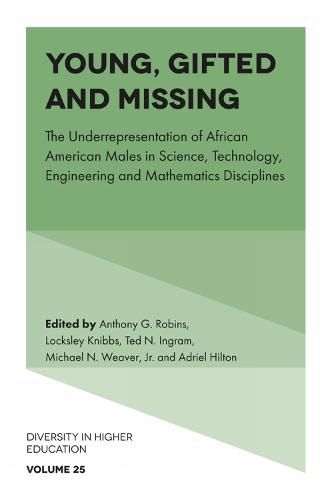Readings Newsletter
Become a Readings Member to make your shopping experience even easier.
Sign in or sign up for free!
You’re not far away from qualifying for FREE standard shipping within Australia
You’ve qualified for FREE standard shipping within Australia
The cart is loading…






Acting as a bridge between the academic and policymaking communities, Young, Gifted and Missing sets the stage for addressing critical issues around why African American men are absent in the STEM disciplines.
The authors track the experiences of African American male students in STEM at every level of the educational system in order to produce successful models of achievement. The number of African American males who enroll in STEM degree programs as opposed to the lower numbers that ultimately graduate portends poorly for U.S. communities and democracy. The road to economic success and global participation requires a rich, educated community that must include African American males. There is a state of urgency to address this critical challenge. Action must happen now. An educated public, not just for some, but one for all is a must.
Graduate students in STEM, education, and business disciplines, as well as executive leadership in education, corporate and non-profit entities stand to benefit from reading this volume. Lastly, those looking to research the successes of African American males in STEM disciplines would find this book purposeful.
$9.00 standard shipping within Australia
FREE standard shipping within Australia for orders over $100.00
Express & International shipping calculated at checkout
Acting as a bridge between the academic and policymaking communities, Young, Gifted and Missing sets the stage for addressing critical issues around why African American men are absent in the STEM disciplines.
The authors track the experiences of African American male students in STEM at every level of the educational system in order to produce successful models of achievement. The number of African American males who enroll in STEM degree programs as opposed to the lower numbers that ultimately graduate portends poorly for U.S. communities and democracy. The road to economic success and global participation requires a rich, educated community that must include African American males. There is a state of urgency to address this critical challenge. Action must happen now. An educated public, not just for some, but one for all is a must.
Graduate students in STEM, education, and business disciplines, as well as executive leadership in education, corporate and non-profit entities stand to benefit from reading this volume. Lastly, those looking to research the successes of African American males in STEM disciplines would find this book purposeful.